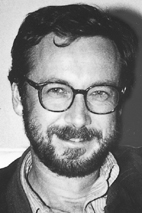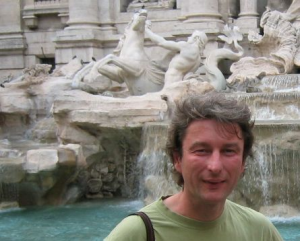|
TOWARD A SCIENCE OF CONSCIOUSNESS The Tucson Conference 2014 - 20th Anniversary APRIl 21-26, 2014 Tucson - University Park Marriott under the direction of the Center for CONSCIOUSNESS STUDIES, University of Arizona
2014 Pre-Conference Workshop
Quantum Cognition
Presenters: Harald Atmanspacher, Peter Bruza, Peter beim Graben, Paavo Pylkkänen Date: Tuesday, April 22, 2014 Session: 9:00 am- 1:00 pm Room: tba
Harald Atmanspacher Peter Bruza Peter beim Graben Paavo Pylkkänen
Description: There are quite a number of concepts in quantum physics that deviate significantly from corresponding features of classical physical systems. Crucial for the description of quantum systems are, for instance, the non-commutativity of observables, probabilities for dispersive states, the non-Boolean logic of propositions, novel concepts such as complementarity and entanglement, inequivalent representations of commutation relations, uncertainty principles, and so forth. The proposed workshop concerns the recent excitement regarding the application of quantum principles on cognitive modeling.
Since the 1990s, several researchers have begun recognizing the potential of quantum principles for revolutionizing our understanding of the mathematical laws governing cognitive process. By now, the field of quantum cognition has found its place in the scientific community. For example, individual contributions have been published in leading journals (such as Psychological Review, Cognitive Science, Behavioral and Brain Sciences, Biological Cybernetics, Foundations of Physics, Proceedings of the Royal Society, Journal of Mathematical Psychology, Journal of Consciousness Studies, Chaos and Complexity Letters). Regular conference presentations (including tutorials and symposia have been given at key conferences (Cognitive Science, Fechner Day, Mathematical Psychology), and journal editors have welcomed special issues on the topic (e.g., in the Journal of Mathematical Psychology and the Topics in Cognitive Science journal).
So far, five broad topics of cognitive science and psychology have profited from quantum approaches: (i) decision processes, (ii) concept combinations in semantic networks, (iii) perception of bistable stimuli, (iv) learning on networks, and (v) order effects in surveys and questionnaires. We will discuss some of these applications in detail and present tutorial material concerning the formal and conceptual background for quantum cognition. It is a distinguishing aspect of the approaches mentioned above that they have all yielded well-defined and specific theoretical models with novel predictions that can be empirically tested.
CV/Bios: Harald Atmanspacher Harald Atmanspacher is Head of the Department of Theory and Data Analysis of the Institute for Frontier Areas of Psychology and Mental Health, Freiburg; Faculty Member of the C. G. Jung Institute, Zurich; Associate Fellow at the Collegium Helveticum, Zurich, at the ETH, as well as at the University of Zurich. He has lectured extensively at the Universities of Heidelberg, Munich, Freiburg, Zurich and at the University of Texas at Austin. Since 2003 Dr. Atmanspacher serves as Editor-in-Chief of the journal Mind and Matter, published by the Society for Mind-Matter Research. His main fields of work are nonlinear dynamics, complex systems, and psychophysical dualism. He is, with Hans Primas, an editor of Recasting Reality: Wolfgang Pauli's Philosophical Ideas and Contemporary Science and he wrote the Stanford Encyclopedia of Philosophy page on Quantum Approaches to Consciousness. Dr. Atmanspacher studied physics in Goettingen, Zurich, and Munich and received a Ph.D in physics 1985 at the University of Munich. From 1986 to 1988 he served as the Reimar Luest fellow, and conducted research in habilitation in theoretical physics (nonlinear dynamics and complex systems) at the University of Potsdam in 1995. From 2002-2005 he was associate member of the Max-Planck Centre for Interdisciplinary Plasma Science, Garching and research scientist in the theory division at the Max-Planck-Institut for extraterrestrial physics at Garching. Research visits include the Santa Fe Institute, Santa Fe, New Mexico and the study center of the Rockefeller Foundation in Bellagio.
Peter Bruza, is a Professor of Information Technology at Queensland University of Technology, Brisbane. Prior to this appointment he was a project leader in the Enterprise Distributed Systems Technology centre - an applied research centre involving both universities and industry partners. He served as chief scientist behind interactive query reformulation technology, which was successfully commercialized and deployed in numerous government departments in Australia and overseas, including the, U.S. Patents Office. Peter Bruza's current research revolves around the question of how to develop technology which can genuinely process meanings in relation to our everyday information processing. This research is cross-disciplinary, spanning the fields of information retrieval, computational linguistics, applied cognition, logic and even quantum mechanics.
Peter beim Graben, DFG Heisenberg Fellow for Cognitive Neurodynamics,
Institut für deutsche Sprache und Linguistik
Paavo Pylkkänen received his masters degree from the University of Sussex and his doctorate from the University of Helsinki. He was an Academy of Finland researcher 1990-1995 and became associate professor in theoretical philosophy at the University of Skovde, Sweden in 1996, where he initiated a consciousness studies undergraduate program. In 2001 he became an adjunct professor at the Department of Philosophy, University of Helsinki, where he has since 2008 been a temporary university lecturer in theoretical philosophy. While doing his masters and PhD theses Pylkkanen interacted with the physicist David Bohm (1917-1992) and became interested in whether Bohm’s ontological interpretation of quantum theory could throw light on various philosophical problems, especially those in philosophy of mind. Bohm suggested that a new type of “active information” plays a role in quantum processes and in his 1992 PhD thesis Pylkkanen developed further Bohm’s idea that mental causation can be understood in a new way in light of this notion.
|
|
|||||||||||||



